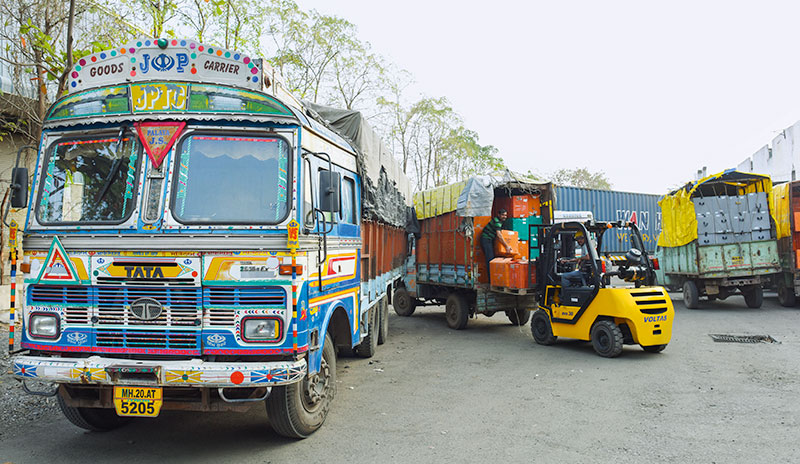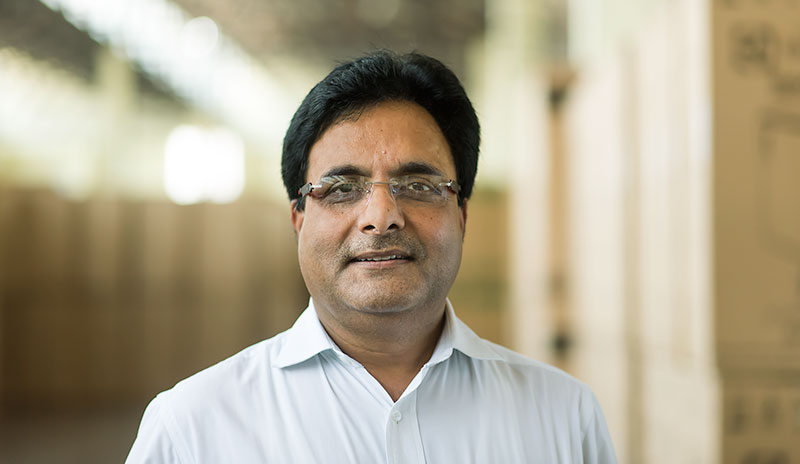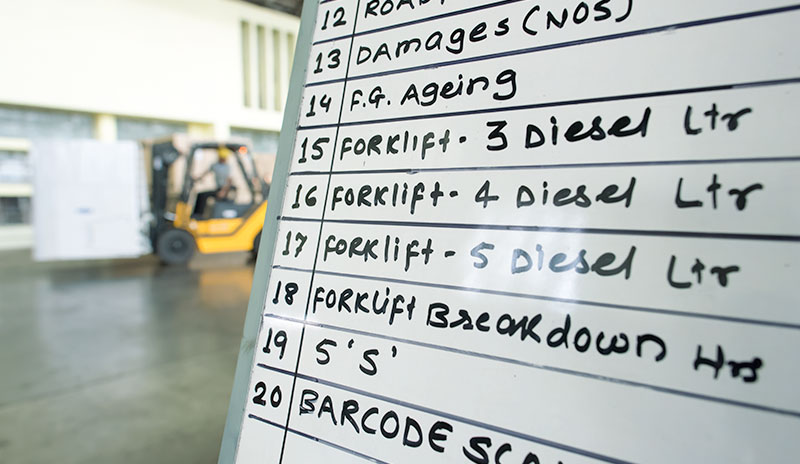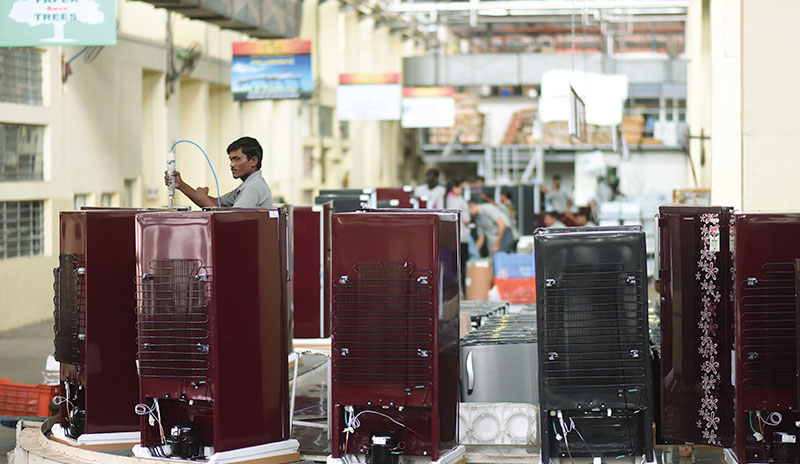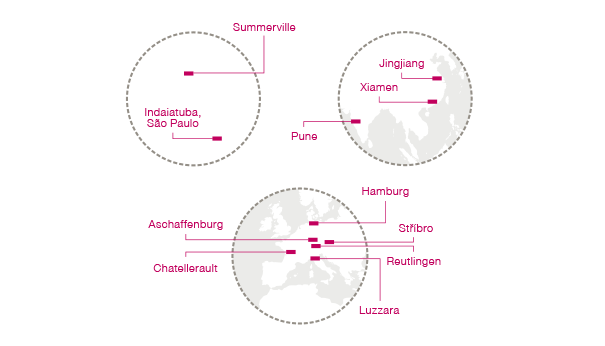Close.
Always being close to the end customer is as essential to Videocon as it is to the KION Group. The washing machines, fridges and microwaves from this Indian household appliances manufacturer provide invaluable help to millions of people. And the trucks are just as invaluable to Videocon.
Always being close to the end
customer is as essential to Videocon
as it is to the KION Group. The washing
machines, fridges and microwaves from this
Indian household appliances manufacturer
provide invaluable help to millions of people.
And the trucks are just as invaluable to Videocon.
The vast factory building belonging to Videocon has a calming feel about it, and the drive through the chaotic streets of Aurangabad, around 250 kilometres north-east of Pune, is soon forgotten. Here at the factory, hundreds of refrigerators are packed in brown cardboard boxes and stacked one above the other. The black and yellow forklift trucks from the KION brand company Voltas are efficiently carrying up to six at a time, back and forth between the warehouse and the lorry that is parked outside the factory gate. Thirty-two trucks are in continuous operation.
Videocon is one of the largest companies in India and specialises in the production of electrical home appliances. Founded in 1979, the company today meets high levels of quality that are certainly on a par with the technology standards of Japan or countries in the west. Exports are running at unprecedented levels, mainly to markets such as China, Korea and Sri Lanka. In India, Videocon is the market leader for washing machines and is among the top five for televisions and refrigerators.
Videocon manufactures 3,000 refrigerators a day
Over 350 lorries loaded with Videocon appliances head out across this vast country every day. In the refrigerator assembly hall in Aurangabad, the production lines never stand still. Depending on the season, the daily output is in excess of 3,000 units. And yet there is no sense of chaos in this clean and well organised factory.
A forklift truck is positioned at the start of the refrigerator production line. It is supplying the punching machine with shiny white plastic sheets from which the inner liner is formed. Men and women wearing light grey t-shirts and gloves are fitting prefabricated components, many of which are imported from China and Korea, on long production lines. They start by threading cables through eyelets before fixing the casing on the metal housing. Further on, less than five metres away, the freezer compartment is fitted. Lastly, the motor and cooling fins are soldered on.
Refrigerators may be a part of everyday life in the west but in India they are much more than that: they are luxury items. Rather than being tucked away in kitchens, they are positioned in the middle of living rooms. Videocon caters to the requirements of the market by producing appliances not only in white, but also with colourful doors decorated with flowers and stripes.
Middle class: new purchasing power
The company owes its meteoric success to the growth of the middle class in India following the deregulation of industry in the early 1990s. Since then, many families have managed to improve their social and financial standing, often coming from conditions of extreme poverty. Purchasing power is growing and the market for electronic household goods is booming. “Indians are selective in their purchases,” says Videocon divisional general manager, D.K. Singh. “We have to offer value for money.”
The consumption habits of the Indian people also place considerable demands on production. “We make eighty per cent of our revenue between October and December during the Indian festival season. It would not be possible to achieve this without our forklift trucks. One truck is equivalent to eight employees.”
Vijay Potdar, manager of operations of Trinity, an authorised Voltas dealer in Aurangabad, sees a great benefit in manufacturing forklift trucks locally at affordable prices. “But it’s not only that,” he says. “Voltas trucks are perfect for India. They are suitable for all kinds of terrain and they are robust, even in extreme climate conditions from minus two to plus 50 degrees.” Videocon is now planning the next stage of its modernisation: to replace its diesel trucks with quieter electric forklifts. Spare parts are available from a Voltas service centre in Aurangabad.
Videocon is looking to expand further and plans to open another factory in the far south of the country. Staying loyal to the Voltas brand, it has already expressed an interest in purchasing additional forklift trucks for the new factory. Looking ahead to the future, the company intends to manufacture the majority of the components in-house so that it is not dependent on Chinese and Korean imports. It is not only India’s new Prime Minister Narendra Modi who wants the ‘Made in India’ label to become a real mark of quality.

